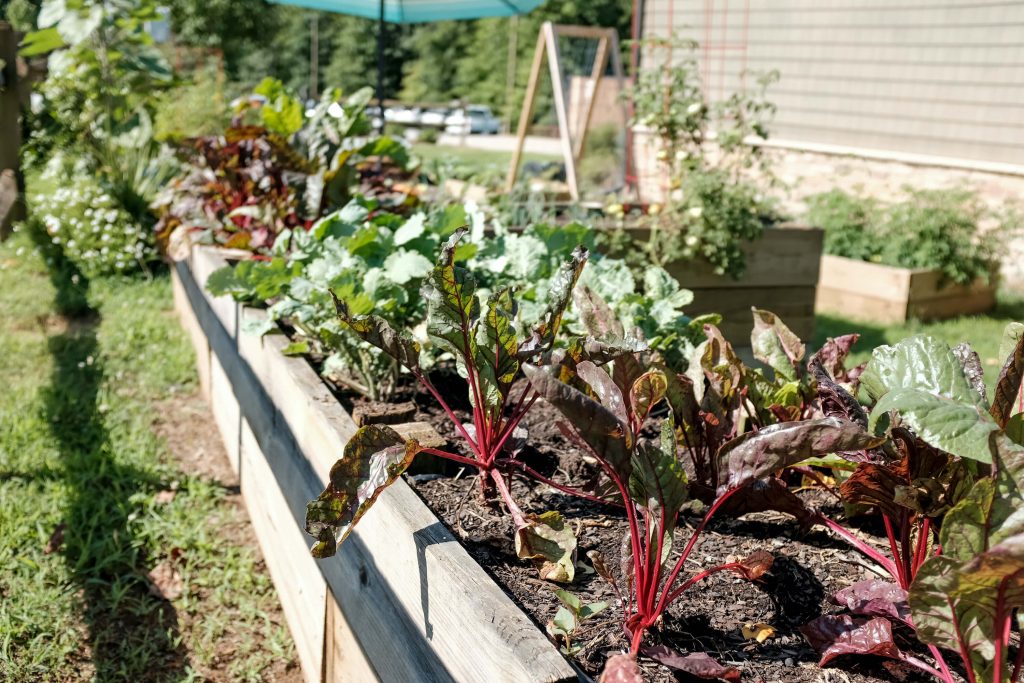Zero Waste Blog, Zero Waste Ideas
6 Basic Tips For Zero Waste Gardening
While most would consider gardening an eco-friendly activity, there can be a considerable amount of waste involved, even with the best of intentions. A 2019 report found that only 2.5% of 34.5 million tons of plastic produced in America was recycled. The rest? Landfilled, burnt, or dumped in oceans. While you may have heard of the anti-straw effort, it is a small part of a much larger “zero waste” movement to decrease the amount of trash going into the environment, cluttering our greenspaces.
Having your own garden is a great way to contribute to a healthier planet. As you work on your garden, consider the ways you can reduce your environmental impact by creating a zero waste gardening. Here’s a few ideas to help you get started. Here’s a few ideas to help you get started your own zero waste gardening.
Table of Contents
Composting
One way to reduce your garden waste, save some money and do your bit for the environment all at the same time is to start home-composting. When garden waste goes to landfill it breaks down and produces a harmful greenhouse gas called methane, which contributes to global warming.
Home composting transforms your kitchen and garden waste as well as small amounts of paper and card into a nutrient rich food for your garden. It’s easy to make and use. All you need to get started is a compost bin and pick the site – ideally a sunny spot on bare soil, however not too sunny so it doesn’t get too warm and dry out.
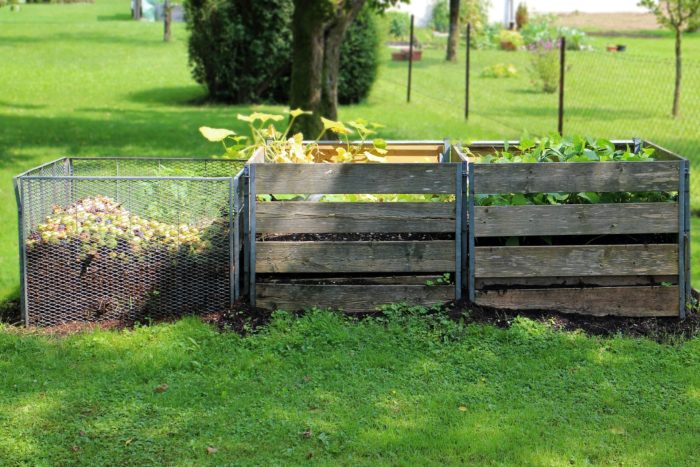
It will usually take over a year for your compost to become ready for use, so now all you need to do is wait and let nature do all the hard work.
Once your compost has turned into a crumbly, dark material, resembling thick, moist soil and gives off an earthy, fresh aroma, it’s ready to use. Lift the bin slightly or open the hatch at the bottom and scoop out the fresh compost with a garden fork, spade or trowel.

Your fresh compost is nutrient-rich food for your garden and will help improve soil structure, maintain moisture levels and feed your plants. It has everything your plants need, including nitrogen, phosphorus and potassium and much needed carbon. Compost improves your soil’s condition and your plants and flowers will love it!
Please do not burn your garden waste by starting bonfires, as the smoke can pose a risk to people’s health – particularly the vulnerable and those with respiratory problems who are required to stay at home at this time.
Rain Water or Reuse Water
Rain water is another free resource you can take advantage of for the zero waste gardening. Collecting rain water if you have an outdoor area and live in a place where it rains a lot can be an easy way to get more “natural” water for your plants. It can also help to prevent the buildup of minerals in the soil and keep your plants healthier for longer. You could dig swales into your garden where rain water will accumulate and slowly percolate into the soil. Or you could find barrels to collect the water and then redistribute it onto your garden. Simply connect your barrel to hoses or use it to fill watering cans.
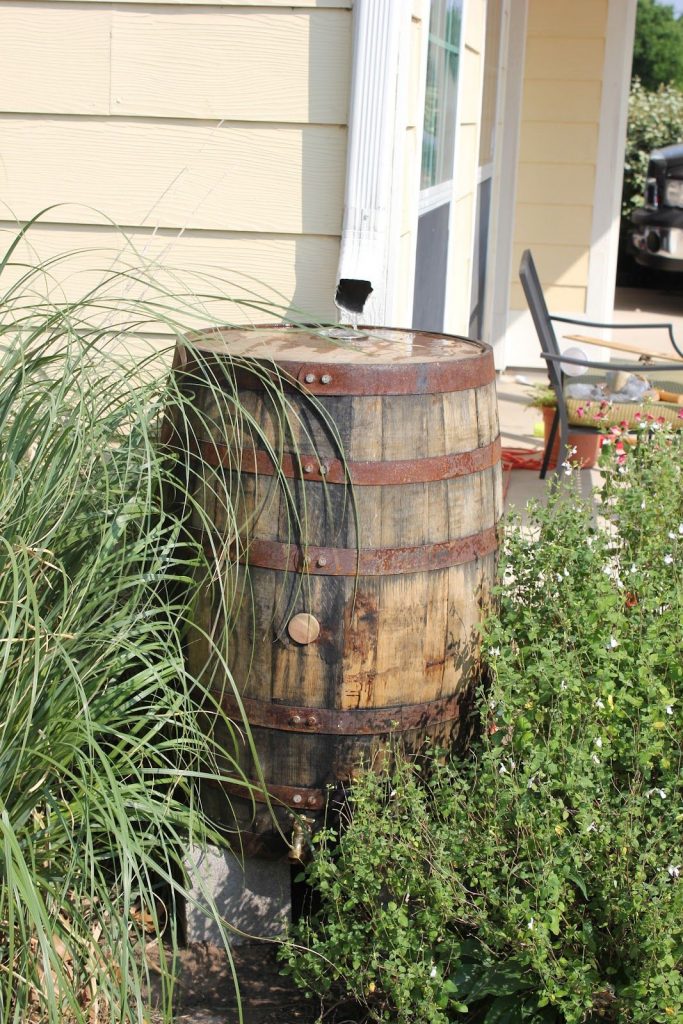
You can invest in a grey water system which can divert grey water from your sink, bath, washing machine water and put it to use to watering your garden.
Another great way to reuse water in zero waste gardening. When you boil vegetables, you should keep the water instead of throwing it away! Obviously you should let it cool before using it to water plants, but the water will soak in nutrients from the vegetables and become some king of supercharged water for you plants. It’s a very easy way to keep them healthy and to reduce waste at the same time.
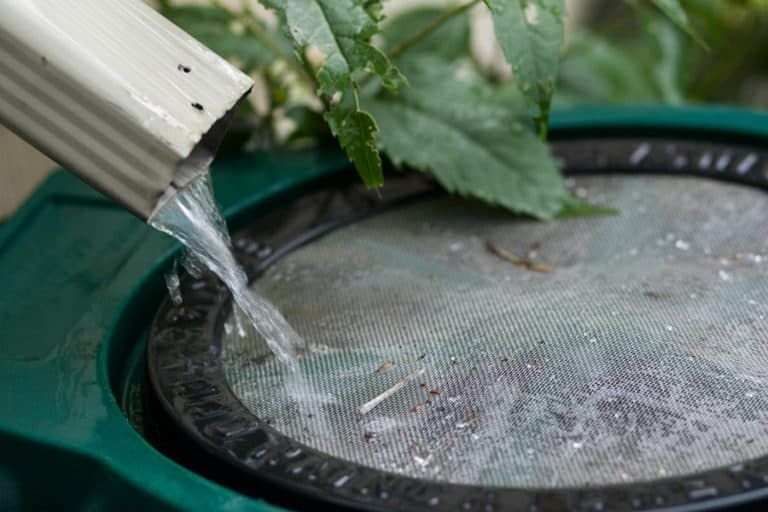
Tip for saving water is to mulch your soil to retain the moisture and make sure you water early morning or evening so that the water doesn’t evaporate in the sun too quickly before it’s absorbed into the ground.
Stop watering your garden using sprinklers and reduce waste by up to 50%. Unlike sprinklers, which wet the whole soil profile, drippers only wet the part of the soil with roots, thus reducing wastage from evaporation and run-offs.
Tools
In 2019, American gardeners spent a record $47.8 billion on gardening supplies, according to the National Gardening Survey.
Going to zero waste gardening, its worth investing in decent high quality tools, so you don’t have to replace them for a long time rather than buying cheaper ones that may break. Keep an eye out for good second-hand tools.
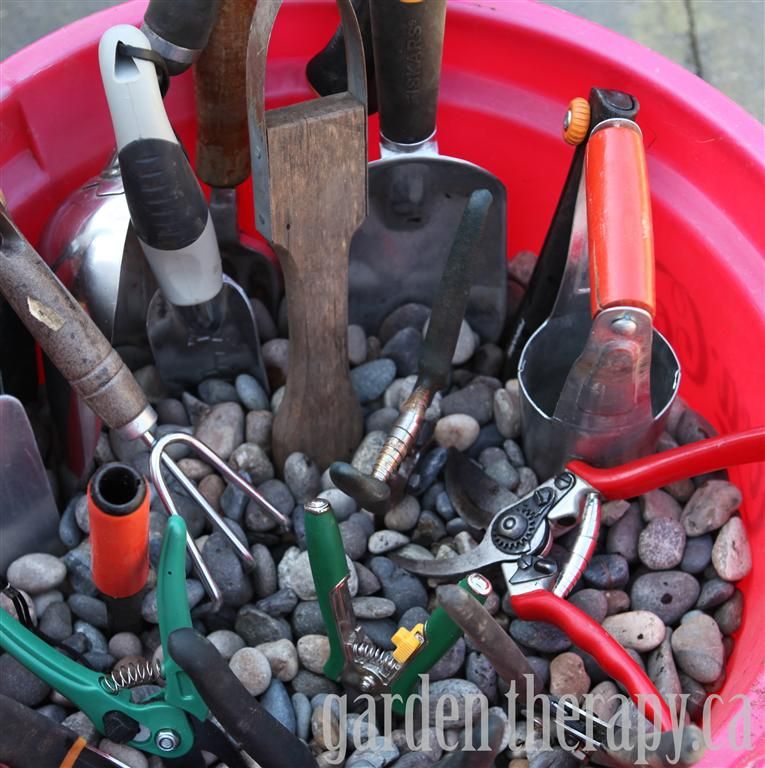
Some garden tools like pruning clippers are rarely used. Instead of buying new, strike a deal with your neighbours to see if you can borrow their.
Manage Plastic Use
Avoid plastic packaging and pots in zero waste gardening. When you buy plants and seedlings from plant shops they can come with a lot of plastic which just gets thrown away after you plant them out in your garden. Most nurseries are happy to take back any plastic pots and planting containers you no longer need. Take your reusable bags to the garden store and fill them with bulk mulch, so you don’t have to use a plastic bag.
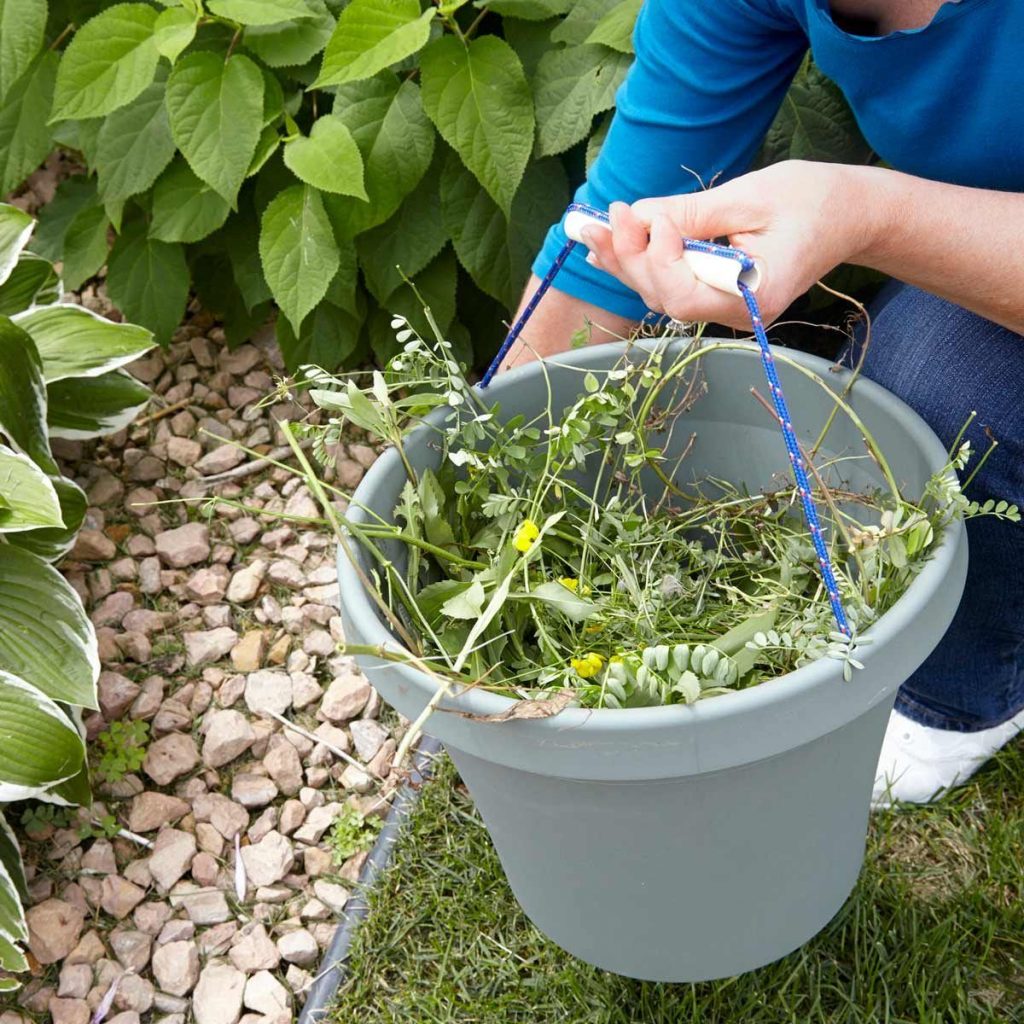
When your plant family grows, keeping old pots and reusing them as you will need to replant more and more plants when they grow. Always make sure to wash plants from a plastic container afterwards when I remove its so it’s all fresh and clean for its new tenant. With time this minimizes the amount you have to buy, the waste, as well as the gardening bill at the end of the month.
Natural Pest Control
If you want to create a zero waste gardening, natural pest control is the way to go. Save spray bottles from cleaning products and reuse them to apply natural pest control substances, such as neem oil.
One of the most effective ways to control pests, like potato beetles or slugs, is to hand-pick daily. Another benefit of hand-picking is that you spend more time with your plants and can spot disease or other issues early. Practice companion planting, which also controls pests naturally.
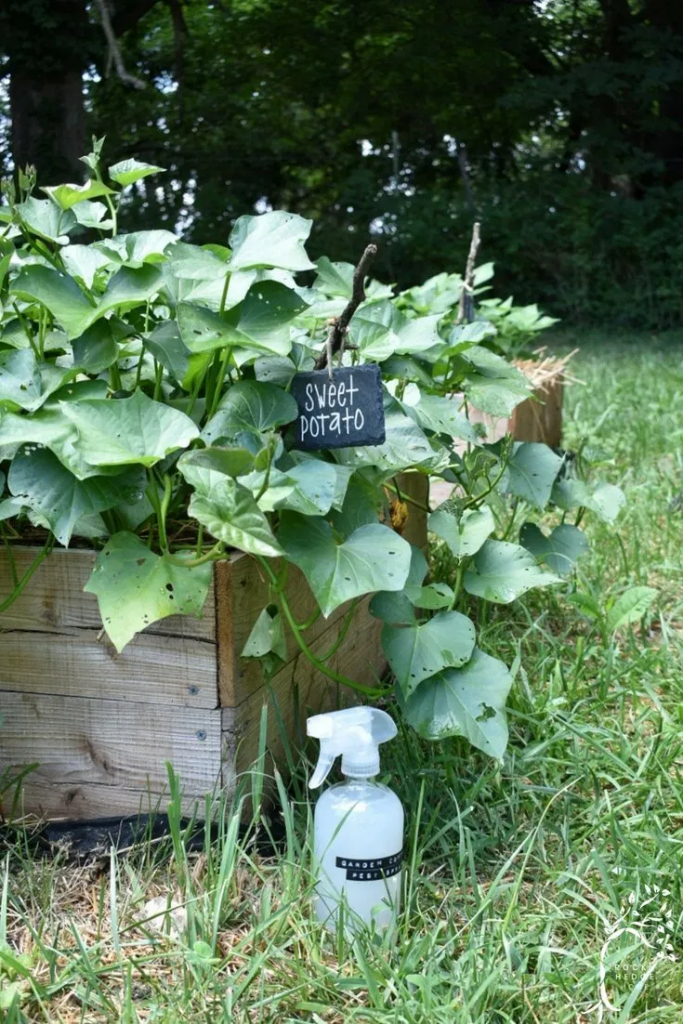
Choosing Plants
Choosing the right plants is key to get your zero waste gardening thriving. It’s not all about looks! Native plants are acclimated to our conditions so are often a good place to start.
Make sure you consider your garden’s conditions too. Weather patterns, climate, sun, soil and landscape are all important to think about. It may take some time to figure out which plants will work in which areas of your garden, but it will certainly be worth it! When plants have the right conditions to flourish they need little maintenance, and that means saving time and money in the long term.
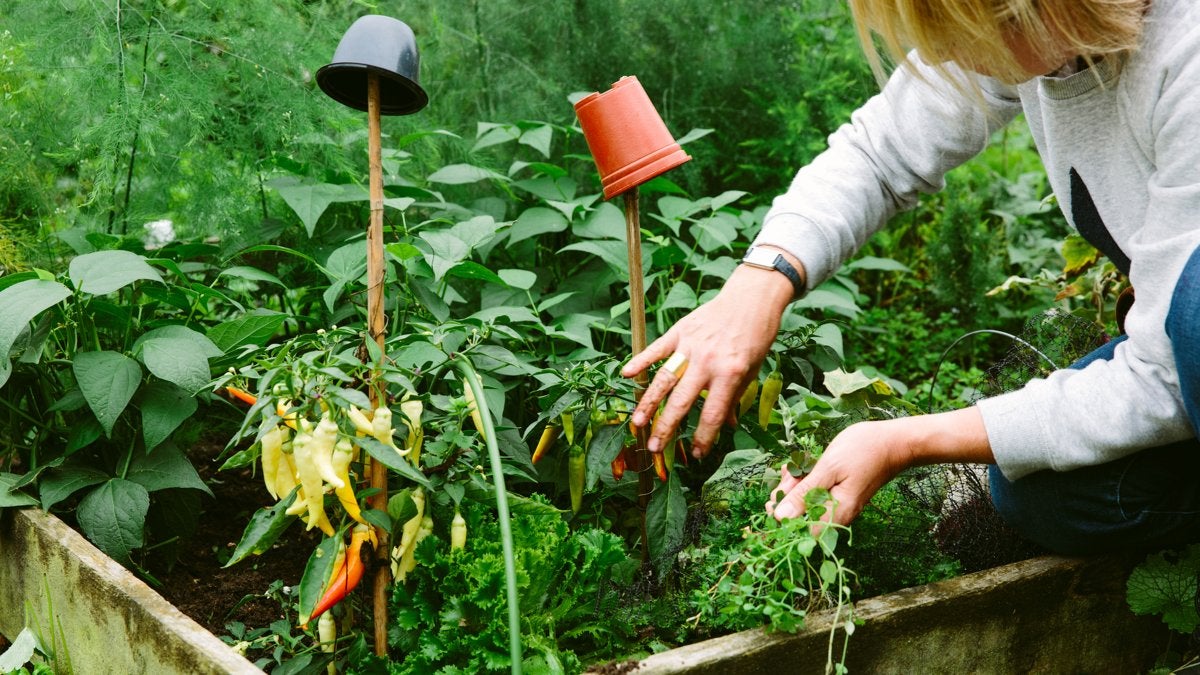
Zero waste gardening is really simple! The future of life on our planet depends on the actions of each individual. If you haven’t yet adopted a zero-waste lifestyle, today’s a great day to get started to reduce your carbon footprint. If you’re a gardener, why not begin with your garden?
Enjoy your garden and I’m sure there are lots more innovative ideas that you can come up with to help you with your Zero Waste Gardening.
Source: Internet.

